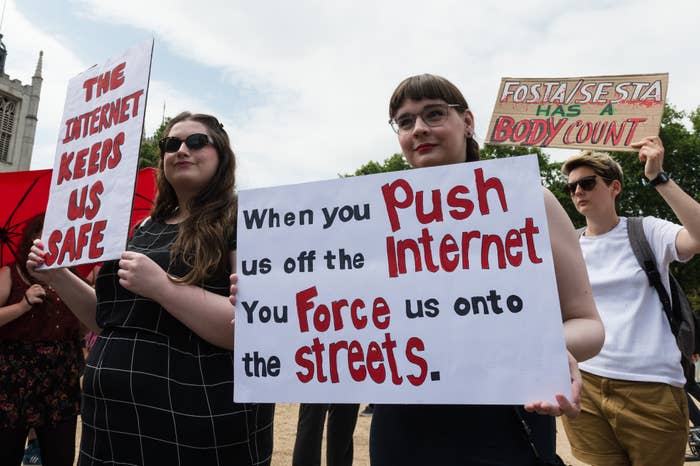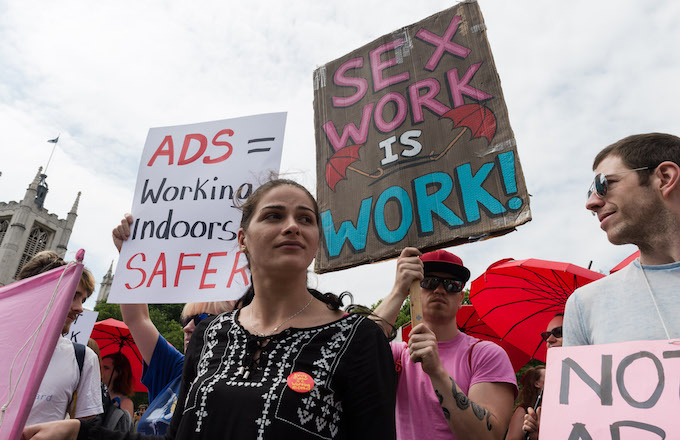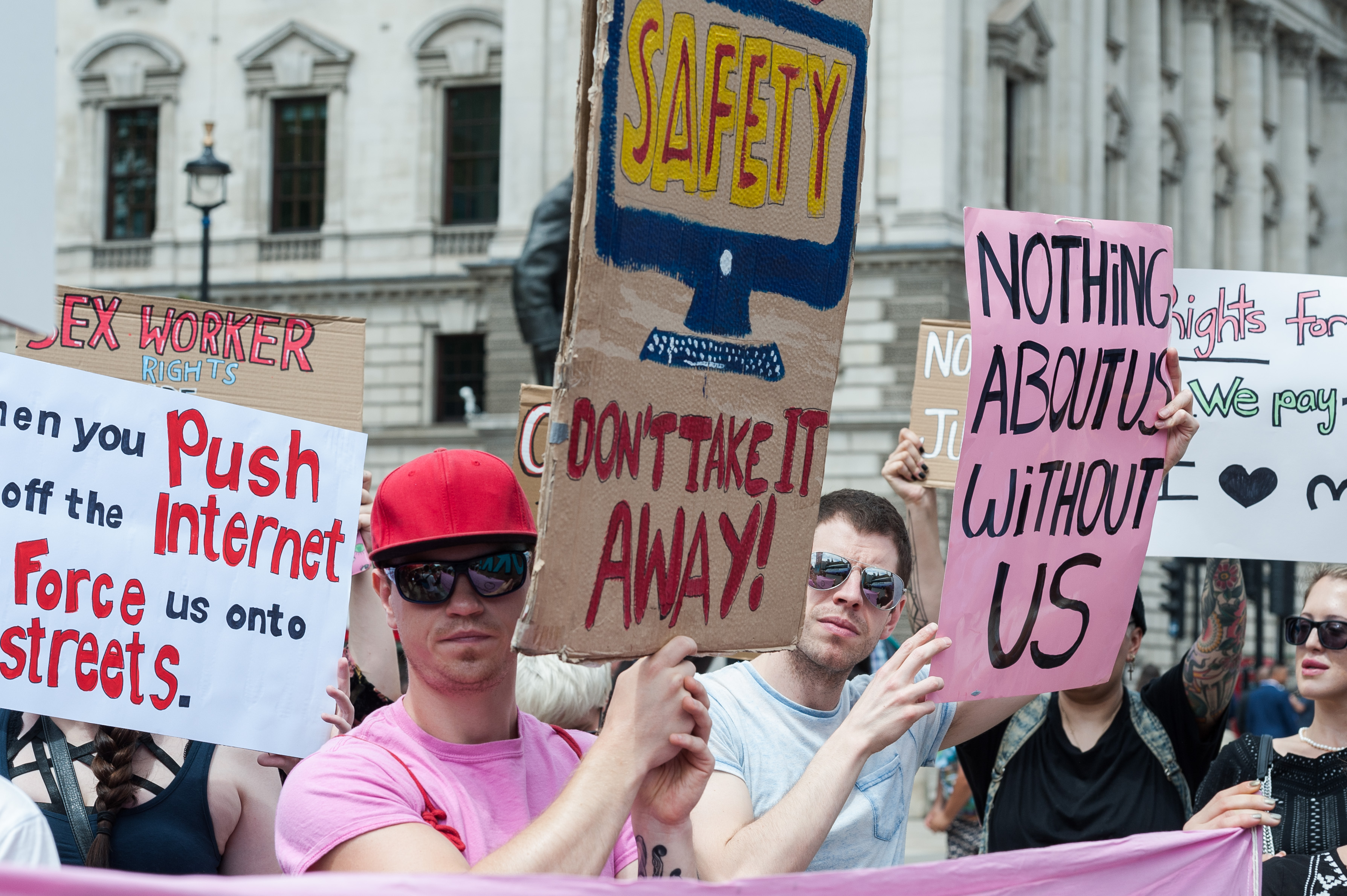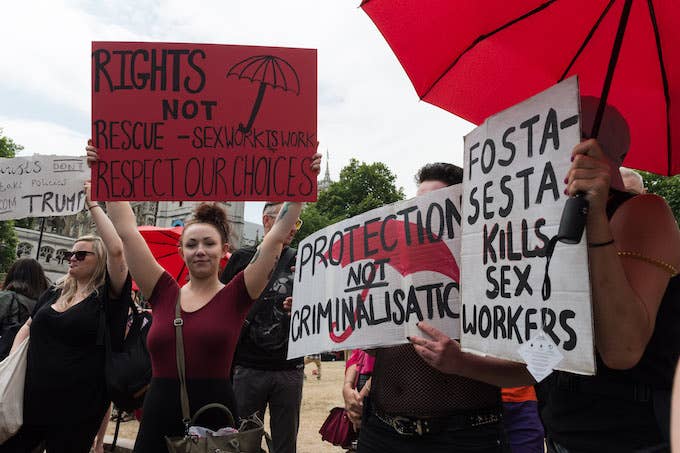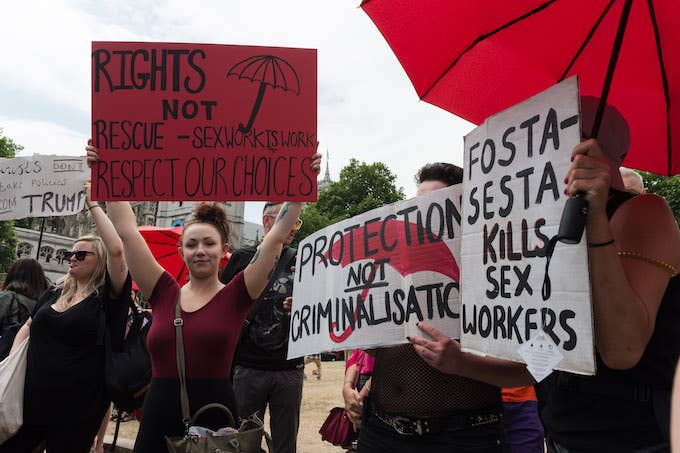
FOSTA is a bill with a body count.
The Allow States and Victims to Fight Online Sex Trafficking Act of 2017, often abbreviated as FOSTA (a competing version of the same bill was introduced in the Senate as the Stop Enabling Sex Traffickers Act, or SESTA, and the acronyms are frequently used together or interchangeably) was signed into law by Donald Trump on April 11 of this year. While the bill has “traffickers” in the title, the text of the legislation shows another word mentioned almost as frequently: “prostitution.” That ratio is the first clue as to the bill’s true aim: to attack sex work of any kind, voluntary or otherwise. And that attack has already had a horrific human cost.
The public push for the bill centered around ads on Backpage, a popular online classified ad space. But the government shut Backpage down days before the bill became law, demonstrating to anyone who was paying attention that the new law was unnecessary—yet by that point, few other than people in the bill’s crosshairs were.
Prior to the passage of the bill, Backpage’s ads allowed sex workers a way to communicate with and screen clients before meeting them in person. In addition, easily accessible online lists of dangerous or sketchy clients existed online, so people knew who to avoid. Now, all of that is gone—the bill has made it a felony to “promote or facilitate” prostitution, explains Aaron Mackey of the Electronic Frontier Foundation. So websites from Craigslist (which killed their long-running Personals section in the wake of the bill’s passage) to Reddit to scores of others have shut down.
Amanda (not her real name) is a trans escort. She tells me that from what she’s seen, FOSTA’s main effect has been isolation and a cutting off of information.
“One of the main things that I have found across the board,” she says during a phone call, “is that people feel very disenfranchised from their ability to network and to keep a blacklist or red flag people, any sort of referencing things to verify people’s identity before you see them. Those are going away, and most people are really worried that this is inadvertently cutting us apart and separating us to where we are all in the dark.”
TS Sonja, a full-service sex worker, writes via email that things have gotten far worse for her in the few months since the new law.
“I lost my main advertisement space: Craigslist. Building a clientele has been nearly impossible because I have no established presence [on other websites]. I can’t afford to screen clients anymore because I have to take any work that I can out of sheer desperation. This has led to me being cancelled on last minute repeatedly, it’s led to me being sexually assaulted by clients, and it’s led to me resorting to concealed carrying a handgun instead of screening clients and checking references. That’s how bad things have gotten.”
This desperation has been noticed by clients, who now frequently demand more services for less money, and are violent with increasing frequency.
“I was raped by a client very recently,” TS Sonja continues. “I’ve heard of others being subjected to violence and creepy behavior much more often since this law passed.”
